Subtotal: £12.58
6 X Discus Food 100 Gram Blister Packs – Premium Frozen Fish Food, Ideal for Discus Fish Care, Enhances Colors and Behavior in Your Peaceful Community Aquarium
£20.49 Original price was: £20.49.£17.42Current price is: £17.42.
Welcome these beautiful Discus fish into your aquarium with our 6 X Discus Food 100 Gram Blister Packs. This premium frozen fish food is tailored for their dietary needs, ensuring they thrive in a loving environment. Ideal for aquarists seeking vibrant, peaceful companions.
1000 in stock
Species Introduction
The discus fish, scientifically known as Symphysodon, is a stunning freshwater species native to the Amazon River basin in South America. These vibrant fish are renowned for their unique disc-like shape and striking coloration, which can range from brilliant blues and greens to rich reds and yellows. Discus fish are not just visually captivating; they are also known for their complex social behaviors and can form strong bonds with their companions. In their natural habitat, they thrive in slow-moving waters filled with dense vegetation, where they find shelter and breeding grounds. Understanding their natural environment is crucial for recreating a suitable home in your aquarium, ensuring the health and happiness of these beautiful aquatic companions.
Care Requirements Dashboard
Essential Care Guide for Your 6 X Discus Food 100 Gram Blister Packs – Premium Frozen Fish Food
| Optimal Living Conditions | |
|---|---|
| Water Temperature | 24-27°C (75-81°F) |
| pH Level | 6.5-7.5 |
| Water Hardness | 4-12 dKH |
| Minimum Tank Size | 80L (20 gal) |
| Salinity | Freshwater |
| Care Level | Beginner Friendly |
Natural Behavior & Temperament
Discus fish are known for their peaceful demeanor and social nature. They exhibit unique swimming patterns, often gliding gracefully through the water, and prefer to stay in groups. In a well-planned community tank, they can coexist harmoniously with other peaceful species. Their social behavior includes establishing hierarchies and forming bonds with tank mates. However, they can be shy and may require plenty of hiding spots and plants to feel secure. Observing their interactions can be a rewarding experience, as they display various behaviors, from playful swimming to courtship rituals during breeding.
Tank Setup Guide
Creating an ideal environment for your discus fish involves careful consideration of tank size, substrate, and decorations. A spacious tank of at least 50 gallons is essential to accommodate their size and social needs. Soft, sandy substrate is preferred, as it mimics their natural habitat and is gentle on their delicate bodies. Incorporating live plants, driftwood, and rocks can provide hiding spots and enhance the aesthetic appeal of the aquarium. Ensure that the decorations do not have sharp edges that could harm your fish friends. Additionally, a reliable filtration system is crucial to maintain water quality and clarity, as discus fish are sensitive to changes in their environment.
Water Quality Management
Water Parameters: Critical for Health
Maintaining optimal water quality is paramount for the health of discus fish. The ideal water temperature should be kept between 82°F to 86°F (28°C to 30°C), with a pH level ranging from 6.0 to 7.5. Regular testing of water parameters is essential to ensure stability. A hardness level of 1-10 dGH is recommended, as discus fish prefer soft, slightly acidic water. Frequent water changes, ideally 25-50% weekly, will help remove waste and toxins, promoting a healthy environment. Additionally, a high-quality filtration system will aid in maintaining clear and clean water, which is vital for the well-being of your aquatic companions.
Feeding & Nutrition
Discus fish thrive on a varied diet that mimics their natural feeding habits. They are omnivores and require a balanced diet consisting of high-quality fish food, including frozen and live foods. A combination of high-quality pellets, frozen bloodworms, brine shrimp, and spirulina flakes can provide the necessary nutrients for growth and health. Feeding should occur 2-3 times a day, with small portions that can be consumed within a few minutes. It’s important to monitor their feeding habits, as overfeeding can lead to health issues. Additionally, providing a varied diet will enhance their coloration and overall vitality.
Compatibility Guide
Ideal Tank Mates
Discus fish are best kept in a peaceful community tank with other non-aggressive species. Suitable tank mates include tetras, corydoras catfish, and peaceful barbs. Avoid aggressive species or those that may nip at their fins, as this can cause stress and injury. The social nature of discus fish means they thrive in groups, so it’s recommended to keep at least five individuals together to promote natural behaviors and reduce stress. Monitoring interactions among tank mates is essential to ensure a harmonious environment.
Health & Wellness
Maintaining the health of your discus fish involves regular monitoring and preventive care. Common health issues include ich, fin rot, and stress-related conditions. Signs of illness may include lethargy, loss of appetite, or abnormal swimming patterns. To prevent health problems, ensure optimal water quality, provide a balanced diet, and avoid overcrowding in the tank. Regular observation of your fish friends will help you identify any changes in behavior or appearance, allowing for timely intervention if necessary. Additionally, quarantine new arrivals before introducing them to the main tank to prevent the spread of diseases.
Breeding Information
Breeding Conditions
Breeding discus fish can be a rewarding experience, but it requires careful preparation and attention to detail. To encourage spawning, provide a breeding pair with a separate tank that mimics their natural environment. The tank should have a flat surface for egg-laying, such as a smooth rock or breeding cone. Water conditions should be optimal, with a temperature of 84°F to 86°F (29°C to 30°C) and a pH level of 6.0 to 6.5. After spawning, the parents will care for the fry, which will require infusoria or specialized fry food for proper growth. Monitoring the breeding process and ensuring a stable environment is crucial for the success of the breeding pair.
Acclimation Process
Introducing new discus fish to your aquarium requires a careful acclimation process to minimize stress and ensure a smooth transition. Begin by floating the sealed bag containing the fish in the tank for about 15-20 minutes to equalize the temperature. After this, gradually mix small amounts of tank water into the bag over the next hour to help the fish adjust to the water parameters. Once acclimated, gently release the fish into the tank using a net to avoid introducing any transport water. This slow acclimation process is vital for the health and well-being of your new aquatic companions.
Long-term Care
Lifespan & Growth Expectations
Discus fish can live up to 10-15 years with proper care, making them a long-term commitment for any aquarist. They grow to an average size of 6-8 inches, but some individuals can reach up to 10 inches in length. Regular monitoring of their growth and health is essential, as well as providing an appropriate diet and environment. As they mature, their coloration may change, becoming more vibrant, which is a rewarding aspect of keeping these beautiful fish. Ensuring a stable and clean environment will contribute significantly to their longevity and overall well-being.
Natural Habitat Recreation
Recreating the natural habitat of discus fish in your aquarium involves mimicking the conditions found in the Amazon River basin. This includes using soft, sandy substrate, plenty of plants, and driftwood to provide hiding spots and create a sense of security. Aim to replicate the slow-moving waters of their natural environment by ensuring proper water flow and filtration. Incorporating natural elements such as leaf litter and rocks can also enhance the biotope, providing not only aesthetic appeal but also a more comfortable environment for your discus fish. This careful attention to detail will help your aquatic companions thrive and exhibit their natural behaviors.
Seasonal Care Adjustments
Seasonal Changes
As seasons change, so do the conditions in your aquarium. During warmer months, ensure that the water temperature remains stable and does not exceed 86°F (30°C). In colder months, consider using a heater to maintain optimal temperatures. Additionally, monitor the water parameters regularly, as fluctuations can occur with seasonal changes. Adjusting the lighting schedule may also be necessary to mimic natural daylight cycles, which can affect the behavior and health of your discus fish. Being proactive about these seasonal adjustments will help ensure a stable and healthy environment for your aquatic friends.
Expert Tips
For those looking to provide the best care for their discus fish, consider implementing some expert tips. Regularly test your water parameters to ensure stability, as discus fish are sensitive to changes. Incorporate a variety of foods into their diet to promote health and coloration. Additionally, consider using a high-quality water conditioner to remove harmful chemicals and toxins from tap water. Establishing a routine for water changes and tank maintenance will help keep your aquarium clean and your fish healthy. Lastly, take the time to observe your fish friends; understanding their behaviors and needs will enhance your experience as an aquarist.
Troubleshooting
Common Issues & Solutions
Encountering issues with your discus fish can be concerning, but many problems can be resolved with careful attention. If you notice signs of illness, such as lethargy or loss of appetite, first check your water parameters to ensure they are within the recommended ranges. If you suspect a disease, consider isolating the affected fish in a quarantine tank for treatment. Stress can also lead to health problems, so ensure that your tank is not overcrowded and that your fish have plenty of hiding spots. Regular maintenance and observation will help you catch issues early and provide the necessary care for your aquatic companions.
Scientific Background
The discus fish belongs to the family Cichlidae, which is known for its diverse range of species and complex behaviors. Discus fish are often referred to as the ‘king of the aquarium’ due to their stunning appearance and unique characteristics. Research into their natural habitat and behavior has provided insights into their care requirements and social dynamics. Conservation efforts are also underway to protect their natural habitats from degradation. Understanding the scientific background of discus fish can enhance your appreciation for these remarkable aquatic companions and inform your care practices.
Advanced Care Techniques
Expert-Level Husbandry
For advanced aquarists, implementing specialized care techniques can enhance the well-being of discus fish. Consider using a specialized filtration system that mimics natural water flow, promoting a healthier environment. Additionally, exploring breeding techniques and fry care can provide a deeper understanding of their life cycle. Regularly participating in aquarium clubs or forums can also provide valuable insights and tips from fellow enthusiasts. Staying informed about the latest research and advancements in fish care will help you provide the best possible environment for your discus fish.
Water Quality Parameters
Optimal Range
24-27°C
6.5-7.5
0 ppm
Caution Zone
22-24°C or 27-29°C
6.0-6.5 or 7.5-8.0
0.25-0.5 ppm
Danger Zone
<22°C or >29°C
<6.0 or >8.0
>0.5 ppm
Monitoring Tip: Test water parameters weekly and perform regular water changes to maintain optimal conditions for your aquatic friends!
Frequently Asked Questions
Q: How much 6 X Discus Food should I feed my fish?
Feeding quantities can vary based on the size and age of your discus fish. A good rule of thumb is to offer an amount they can consume in 2-3 minutes, usually around 2-3 pellets per fish, two to three times a day. Overfeeding can lead to poor water quality, which is detrimental to their health. Monitor their behaviour; if they are still looking for food after a feeding session, you may need to slightly increase the quantity. Always ensure that any uneaten food is promptly removed to maintain water quality.
✓ Expert Tip
Consider varying their diet by mixing this discus food with other high-quality frozen or live foods to ensure a balanced nutrition.
Q: How frequently should I feed my discus fish?
Discus fish thrive on a consistent feeding schedule, ideally receiving food two to three times a day. Young or growing discus may require more frequent feedings to support their development. It is essential to maintain a routine as this helps them adapt better and reduces stress. Ensure to adjust the amount based on their activity levels and appetite, as healthy fish will actively seek food. Always observe their behaviour; if they seem uninterested, it may be time to reconsider the food type or feeding frequency.
✓ Expert Tip
Introduce variety in their diet to keep them engaged and ensure they receive all necessary nutrients.
Q: Which fish species can consume 6 X Discus Food?
This premium frozen fish food is specifically formulated for discus fish, but it can also be suitable for other cichlid species and similar freshwater fish that require high-quality protein in their diet. Fish such as angelfish, rams, and certain types of tetras may benefit from this food. However, always ensure to check the specific dietary needs of your fish friends, as some may require different food types to thrive. Mixing this food with other appropriate diets can promote a balanced nutrition.
✓ Expert Tip
Always observe how your fish respond to new foods and adjust accordingly to ensure they are thriving.
Q: How should I properly store 6 X Discus Food?
To maintain the freshness and nutritional quality of your frozen discus food, store it in the freezer at a consistent temperature. It is advisable to keep it in its original packaging or transfer it to an airtight container to prevent freezer burn. Always ensure that you do not refreeze thawed food, as this can degrade its quality. When ready to use, simply remove the required amount, allow it to thaw in the refrigerator, and feed it to your fish once it reaches room temperature.
✓ Expert Tip
Always check the packaging for expiry dates and use the food within the suggested timeframe for optimal results.
Q: What are the nutritional benefits of 6 X Discus Food?
6 X Discus Food is specially formulated to meet the dietary needs of discus fish, providing a balanced mix of proteins, fats, and vitamins essential for their growth and health. High-quality ingredients support vibrant colouration and robust immune systems, which are vital for disease resistance. This food is also designed to enhance digestive health, ensuring that your fish friends can efficiently absorb nutrients. Regular feeding of this food can lead to improved growth rates and overall vitality.
✓ Expert Tip
Always pair this food with a variety of other high-quality foods to ensure a well-rounded diet for your discus.
Q: Will 6 X Discus Food affect my water quality?
While high-quality foods like 6 X Discus Food are designed to minimise waste, overfeeding can lead to deteriorating water quality. Uneaten food can decompose, releasing toxins and leading to increased ammonia levels, which can harm your fish. To prevent this, always feed appropriate amounts that your fish can consume within a few minutes. Regular water testing and changes are essential to maintain optimal water conditions. Keeping your tank clean and well-maintained will ensure a healthy environment for your aquatic companions.
✓ Expert Tip
Implement a regular cleaning schedule to help manage waste and keep your water parameters stable.
Q: Is 6 X Discus Food suitable for breeding fish?
Yes, 6 X Discus Food can be an excellent choice for breeding discus fish due to its high protein content and essential nutrients that support reproductive health. Proper nutrition is vital during the breeding phase, as it helps ensure the health of both the parents and their fry. Providing a varied diet alongside this food can further enhance breeding success. It is advisable to monitor the health of breeding pairs closely and adjust their diet as needed to support their specific reproductive needs.
✓ Expert Tip
Consider supplementing their diet with live or frozen foods to provide additional nutrients during breeding.
Q: How do I transition my fish to 6 X Discus Food?
Transitioning your fish to 6 X Discus Food should be done gradually to avoid digestive issues. Start by mixing a small amount of the new food with their current diet, gradually increasing the proportion of the new food over a week or so. Monitor their response; if they eat eagerly and show no signs of distress, you can continue the transition. If any fish appear hesitant, reduce the amount of new food until they are more comfortable. Patience is key during this process, as a gradual introduction will help ensure a smooth transition.
✓ Expert Tip
Observe your fish closely during the transition period to ensure they adapt well to the new food.
Q: What ingredients are contained in 6 X Discus Food?
6 X Discus Food typically contains a blend of high-quality proteins, vitamins, and minerals tailored to the dietary needs of discus fish. Common ingredients may include fish meal, spirulina, and various aquatic proteins, designed to enhance growth, colouration, and overall health. Always check the packaging for a detailed ingredient list, and consult with your aquarium specialist if you have specific dietary concerns for your fish friends. A balanced diet is crucial for their well-being, so understanding the ingredients helps ensure optimal nutrition.
✓ Expert Tip
Research the nutritional needs of your specific fish species to ensure they are receiving the best possible diet.
Q: How do I adjust feeding amounts for different fish sizes?
When feeding different fish sizes, it is essential to adjust the amount of food accordingly. Smaller fish or younger discus may require smaller portions, while larger or adult fish will need more substantial amounts. A good approach is to start with a smaller quantity and monitor how quickly they consume it. If they finish within a few minutes and seem eager for more, you may gradually increase the portion. Conversely, if there is leftover food, reduce the quantity to avoid polluting the water.
✓ Expert Tip
Consider feeding multiple times a day to ensure all fish receive adequate nutrition, particularly in a mixed-species tank.
Q: Can 6 X Discus Food enhance fish colouration?
Yes, 6 X Discus Food is designed to enhance the natural colouration of your fish friends. The inclusion of spirulina and other colour-enhancing ingredients can help promote vibrant hues and overall aesthetic appeal. Regular feeding of this food can lead to noticeable improvements in colour intensity, especially in healthy, well-fed fish. Remember, a well-balanced diet combined with optimal water conditions and lighting will yield the best results in colour enhancement.
✓ Expert Tip
Combine this food with other high-quality diets to fully support colour enhancement and overall health.
Q: What feeding techniques work best with 6 X Discus Food?
When feeding your discus fish, it is advisable to use techniques that encourage natural foraging behaviours. Scatter the food across the surface of the water or use a feeding ring to allow fish to see and access the food easily. This mimics their natural feeding habits and can help reduce competition amongst fish. Observe their feeding patterns and adjust the technique as necessary to ensure all fish are receiving adequate nutrition while minimising waste.
✓ Expert Tip
Consider feeding during quieter times when the fish are less stressed to promote a more relaxed feeding environment.
Q: How does 6 X Discus Food support fish health and growth?
6 X Discus Food supports fish health and growth through its carefully balanced formulation, rich in proteins and essential nutrients. These components are vital for muscle development and overall vitality. Regular consumption of this high-quality food can lead to improved growth rates, enhanced immune function, and better reproductive health. Additionally, the food promotes digestive efficiency, ensuring that nutrients are absorbed effectively, which is crucial for the well-being of your discus fish.
✓ Expert Tip
Maintain optimal water conditions and provide a varied diet for the best health outcomes.


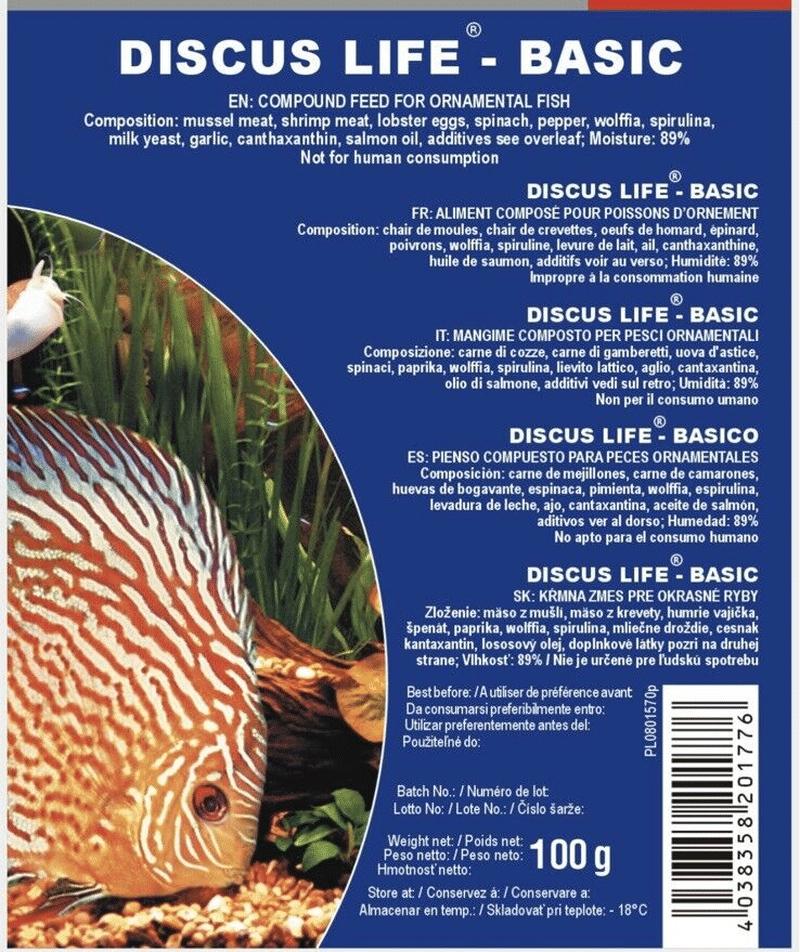
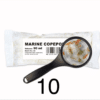
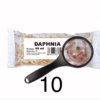
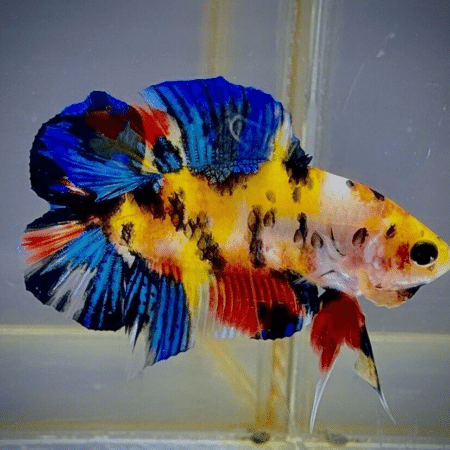


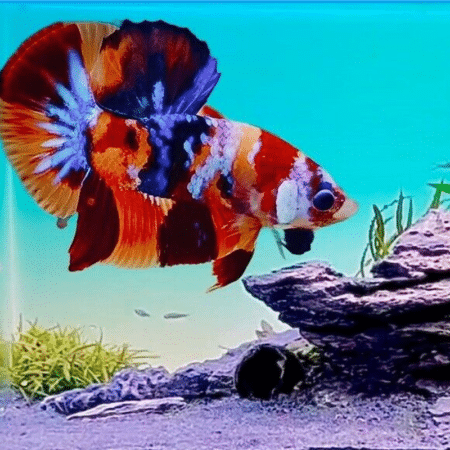



Lisa Harper (verified owner) –
As a caring fish parent, I understand the importance of high-quality nutrition for my discus fish, and the 6 X Discus Food 100 Gram Blister Packs have truly impressed me. After using this product for about two months, I can confidently say it has significantly improved the health and vibrancy of my fish. I love that it’s packed with essential nutrients and is specifically formulated for hybrid discus. My fish are noticeably more active and their colors have become more vibrant. I’ve even noticed less waste in the tank, which is a plus!
Compared to the pellets I used before, this frozen food is a game-changer, as my discus are more eager to eat and seem to enjoy it much more. The blister packs make it super convenient to use, and I appreciate that I can easily thaw only what I need. The only minor concern I had was that the food could be a bit messy when thawing, but it’s a small trade-off for the benefits my fish are receiving.
I highly recommend this product to anyone looking to keep discus or even betta fish happy and healthy. You won’t be disappointed!